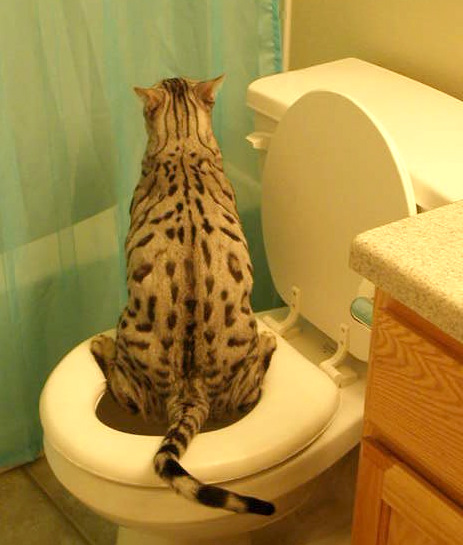Reasons You Must Never Flush Cat Poop Down Your Toilet - Critical Information
Reasons You Must Never Flush Cat Poop Down Your Toilet - Critical Information
Blog Article
We've encountered this article on Can You Flush Cat Poop Down The Toilet? directly below on the internet and decided it made sense to relate it with you on this page.

Introduction
As cat owners, it's necessary to be mindful of how we deal with our feline buddies' waste. While it may seem convenient to flush pet cat poop down the toilet, this technique can have destructive effects for both the setting and human wellness.
Alternatives to Flushing
Luckily, there are much safer and much more responsible ways to dispose of pet cat poop. Take into consideration the adhering to choices:
1. Scoop and Dispose in Trash
One of the most common method of disposing of pet cat poop is to scoop it right into a naturally degradable bag and throw it in the garbage. Make sure to utilize a dedicated litter scoop and take care of the waste immediately.
2. Use Biodegradable Litter
Go with eco-friendly feline clutter made from products such as corn or wheat. These litters are eco-friendly and can be securely dealt with in the garbage.
3. Bury in the Yard
If you have a lawn, take into consideration burying pet cat waste in a designated area far from veggie gardens and water resources. Make sure to dig deep adequate to prevent contamination of groundwater.
4. Install a Pet Waste Disposal System
Purchase a pet dog waste disposal system especially made for cat waste. These systems utilize enzymes to break down the waste, minimizing smell and ecological impact.
Health Risks
In addition to ecological problems, purging cat waste can additionally position health risks to people. Feline feces might consist of Toxoplasma gondii, a bloodsucker that can create toxoplasmosis-- a possibly severe illness, especially for pregnant women and individuals with weakened immune systems.
Environmental Impact
Flushing cat poop introduces damaging microorganisms and parasites into the supply of water, posturing a substantial threat to marine ecosystems. These contaminants can adversely influence aquatic life and concession water top quality.
Final thought
Accountable family pet possession prolongs beyond offering food and shelter-- it also involves correct waste monitoring. By avoiding purging feline poop down the toilet and opting for alternative disposal methods, we can decrease our ecological impact and safeguard human health.
Why You Should Never Flush Cat Poop Down the Toilet
A rose by any other name might smell as sweet, but not all poop is created equal. Toilets, and our sewage systems, are designed for human excrement, not animal waste. It might seem like it couldn’t hurt to toss cat feces into the loo, but it’s not a good idea to flush cat poop in the toilet.
First and foremost, assuming your cat uses a litter box, any waste is going to have litter on it. And even the smallest amount of litter can wreak havoc on plumbing.
Over time, small amounts build up, filling up your septic system. Most litter sold today is clumping; it is made from a type of clay that hardens when it gets wet. Ever tried to scrape old clumps from the bottom of a litter box? You know just how cement-hard it can get!
Now imagine just a small clump of that stuck in your pipes. A simple de-clogger like Drano isn’t going to cut it. And that means it’s going to cost you big time to fix it.
Parasitic Contamination
Believe it or not, your healthy kitty may be harboring a nasty parasite. Only cats excrete Toxoplasma in their feces. Yet it rarely causes serious health issues in the cats that are infected. Most people will be fine too if infected. Only pregnant women and people with compromised immune systems are at risk. (If you’ve ever heard how women who are expecting are excused from litter cleaning duty, Toxoplasma is why.)
But other animals may have a problem if infected with the parasite. And human water treatment systems aren’t designed to handle it. As a result, the systems don’t remove the parasite before discharging wastewater into local waterways. Fish, shellfish, and other marine life — otters in particular — are susceptible to toxoplasma. If exposed, most will end up with brain damage and many will die.
Depending on the species of fish, they may end up on someone’s fish hook and, ultimately on someone’s dinner plate. If that someone has a chronic illness, they’re at risk.
Skip the Toilet Training
We know there are folks out there who like to toilet train their cats. And we give them props, it takes a lot of work. But thanks to the toxoplasma, it’s not a good idea.

I have been very enthusiastic about How to Dispose of Cat Poop and Litter Without Plastic Bags and I'm hoping you liked my entry. If you please take the opportunity to distribute this article if you liked it. Thanks a lot for your time invested reading it.
Schedule Appointment Report this page